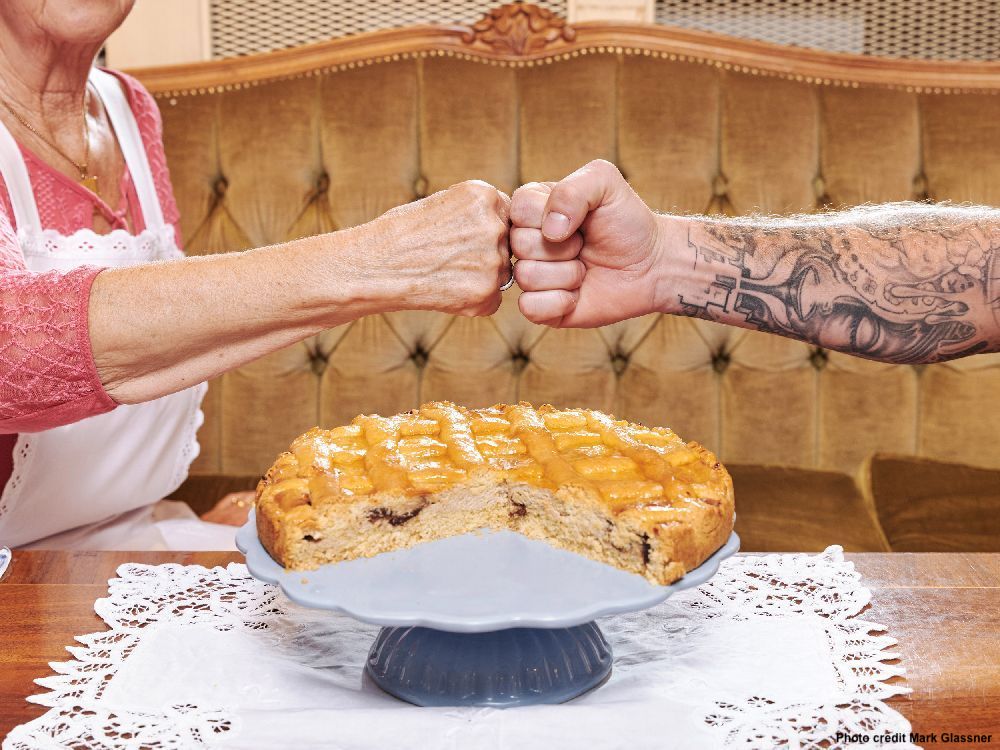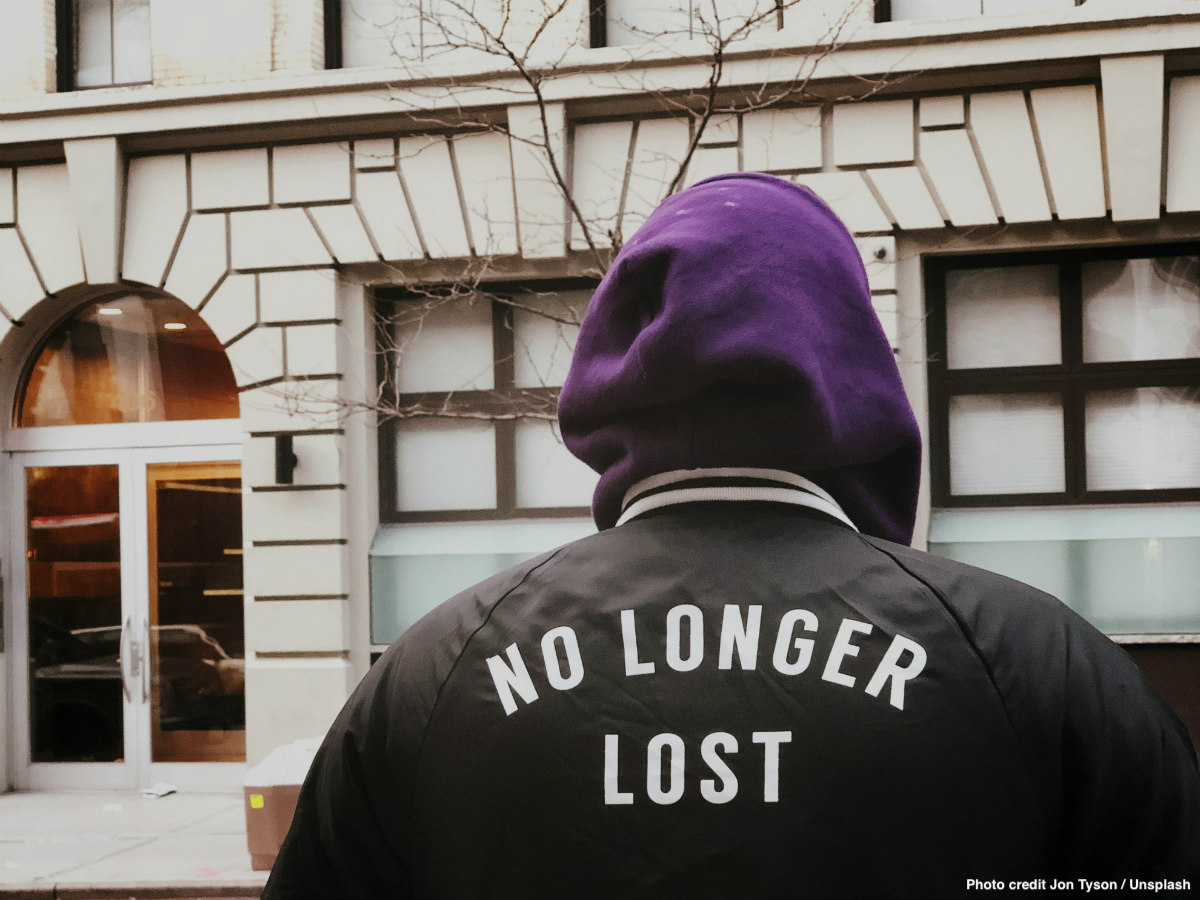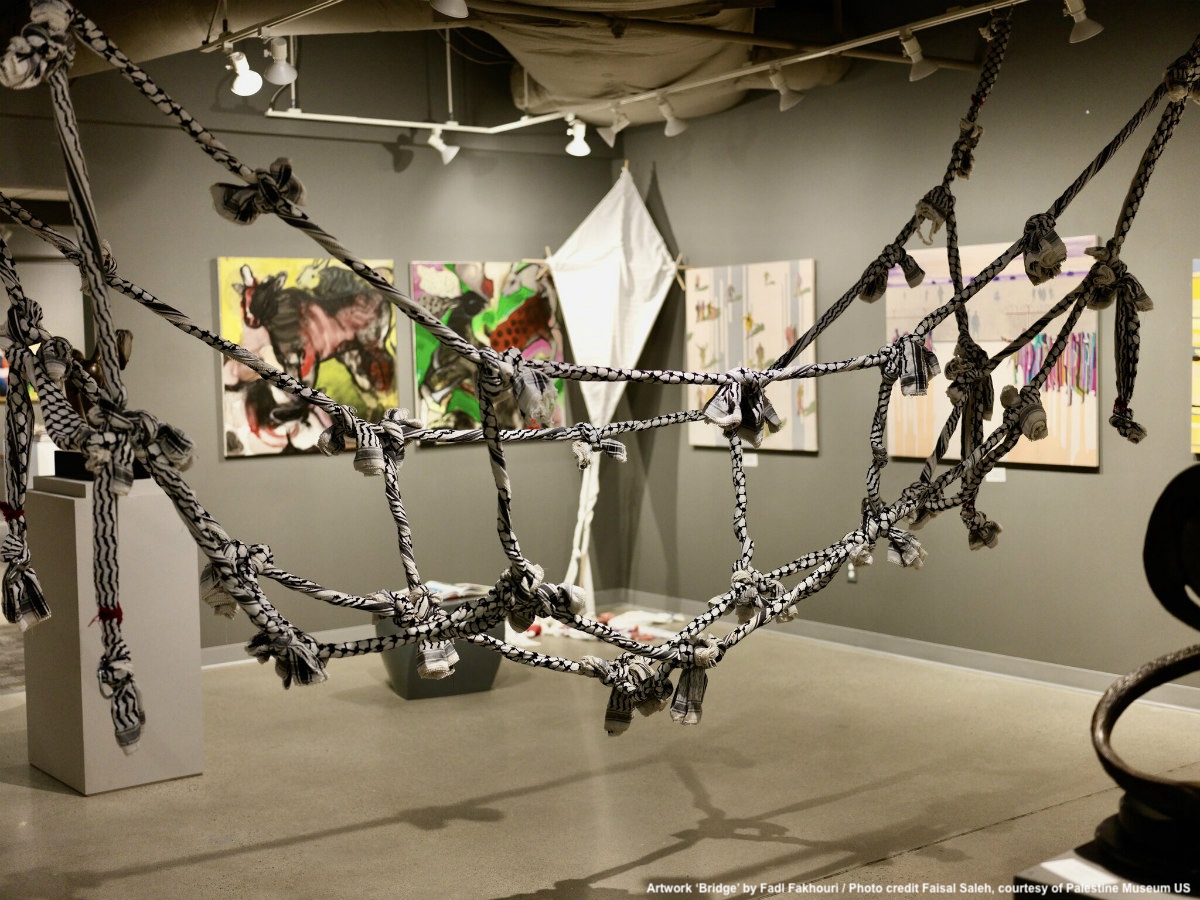Each of the elderly women articulates a distinctive smile as they go around tables and patterned sofas, or display their abilities behind the counter with freshly baked cakes. They offer such a plethora of cakes that it is almost impossible to single out a bestseller. From the classics à la Sachertorte, apple strudel and Gugelhupf, to the original Buchteln with vanilla sauce, a typical Austrian yeast pastry filled with jam, or the Zupftorte – a kind of cheesecake – are also a standout.
For the full experience, head to Vollpension, a coffee shop in Vienna, where grandmas and grandpas reveal their baking secrets in an open kitchen, and customers sip fine coffee with a piece of cake straight out of the oven while listening to old music. Old family recipes are one of the country’s most celebrated traditions but one that could soon be consigned to the past, owned by elderly who often live on the verge of poverty and isolation in the city.
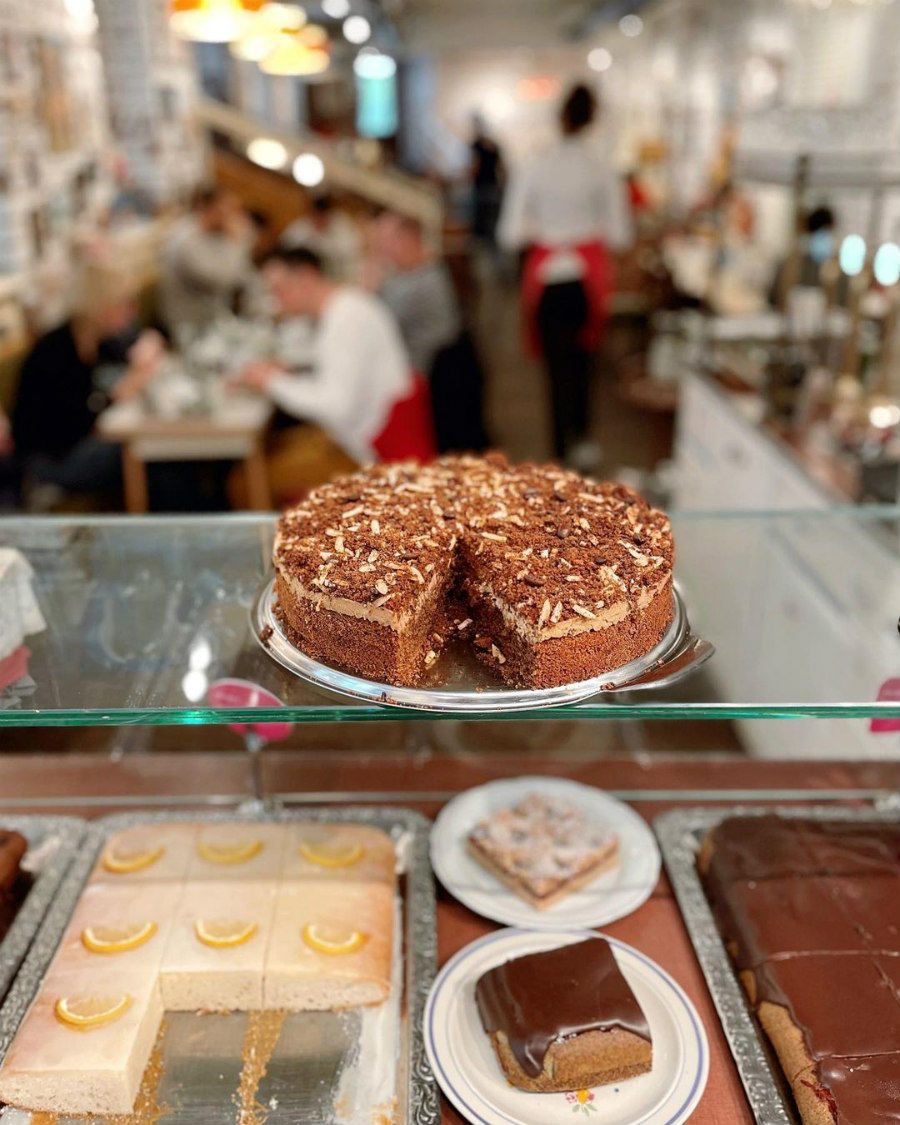
David Haller, among many other co-founders, runs this innovative concept of the so-called generations coffee shops in Vienna that employs elderly women and men, who use their baking knowledge and serve customers. The project began as a means to spark encounters for elderly people with younger generations, Haller says, but had since switched focus to alleviating their sense of isolation and addressing their financial problems.
The grandmas are our core, he continues, everything revolves around them. Some customers might appear a little irritated by the first encounter because they are not expecting a grandma to be their waitress but most of the guests are enthusiastic right from the start. This intimate space is the perfect spot for an afternoon piece of cake where every day feels special. You never know what cake you will get on the day, and all are each to their own baking secrets.
“Eating brings people together” is the leitmotiv around the promotion of dialogue among people of different generations at this coffee shop. Vollpension doesn’t just give the elderly something to do — it’s giving employees status, and most importantly, a sense of belonging, they can communicate with customers and make an additional income. Yet financial precarity and isolation feed into each other.
Elderly poverty affects 25 percent of pensioners in Austria, not only in the city. Women are three times more likely to be poor in old age than men. The average old-age pension in Austria is 1,419 € for men and 40% less for women amounting to 842 €. The biggest change came in 2003, when the government signed a pension reform which mostly affected women. Poverty in old age is female in Vienna.

Hannelore is 67 years old, divorced, mother of three children and grandmother to four grandchildren. She lives with her cat in a small cooperative apartment in Vienna’s 10th district, where she moved to while still working. Her monthly pension of 980 € is unfortunately inadequate to afford what she needs now. As a result, it is difficult to keep her home warm in winter – electricity and gas prices have doubled – and to pay her regular bills. She only goes to the hairdresser once a year. The last time she bought herself new clothes was when she was still working as an office clerk in a small family business. She is not the only one. Hannelore’s story is one of many that the organisation alt.arm.weiblich is echoing to give old women a voice in Vienna and raise awareness about elderly poverty in the city.
What strikes us most is that quite a lot of our seniors live alone, explains Haller.
Every 3rd person over 65 is living alone in Austria. I asked him where older people usually meet in Vienna. Is it at public squares or public parks? But it is difficult to tell in a big city. The elderly spend lots of time within the four walls of their homes so that the problem becomes invisible to society and even to their own families. “In any case they very rarely meet people from other generations”. But we are convinced that the problem of discrimination, or rather exclusion, is not specific to Vienna, says Haller. We know that the elderly exist but cities fail “to highlight their potential and give them a platform where they can give their life experiences and knowledge back to society.”
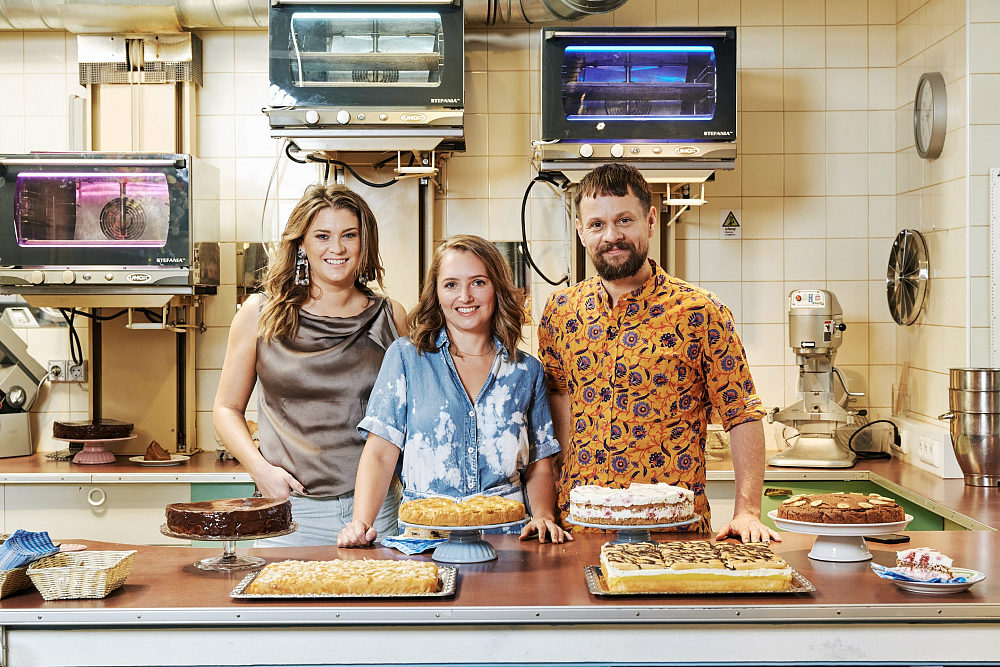
In one of the pastry capitals of the world, this knowledge of old family recipes has enabled the elderly to continue using their skills well into old age thanks to Vollpension. But this is also complicated in the eyes of Austrian law because, as a retired person getting back into the job market, you have to pay a lot of taxes and it all depends on which type of pension you receive, explains Haller. A way to get around this, is the so-called mini-jobs, part-time employment positions where you earn a maximum of 450 € per month.
What we see is that, even if it is possible to work, you kind of get the feeling that it is not really desired. The way we see it is that a change of thinking needs to happen: A society should empower elderly people to still be active and give them the freedom to earn some money, even in old age.
Unfortunately, there is negligence by politicians and city administrations in wealthy Western cities to acknowledge that this social group of pensioners with vulnerable incomes exists and that they need top-ups to reach their monthly end. A more visible example are the bottle pickers or deposit collectors in German cities which grew exponentially after the introduction of the deposit on one-way beverage containers in 2006. They are men and women picking up cans and bottles to cash in the deposit (around 25 cents per bottle or can). They look and reach deep into the garbage for cans with their hands, at train stations, in front of football stadiums, public parks and pedestrian zones.
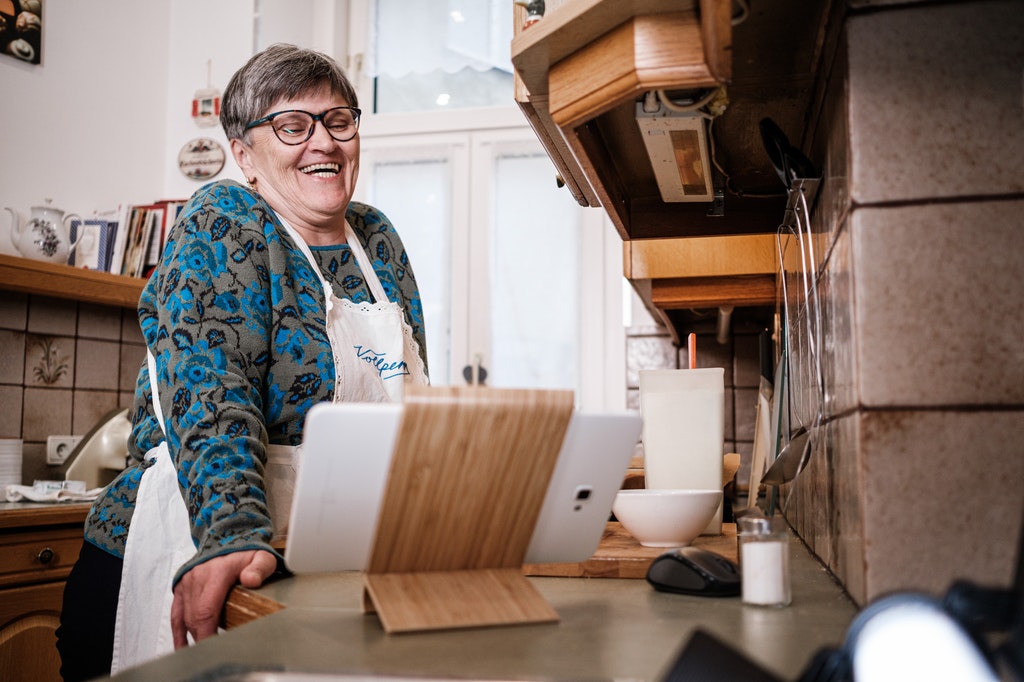
In Germany a growing number of elderly are at risk of poverty in the city. I see bottle pickers almost everyday around my neighbourhood. This issue has also ignited the initiative called hey at coffee shops in Munich where a client can pay the price of two coffees but consume only one, leaving the other for somebody else with not enough resources. The initiative underlines the importance of local cafes and bakeries to connect people with limited resources, especially the elderly, with social life.
Vollpension has gained ground in Vienna and provides a visible insight into the situation of the elderly in the city. The name was a clever choice. When googling ‘Altersarmut Wien’ (German for ‘elderly poverty Vienna’), you get Vollpension right at the top. The name is both a pun on being completely in retirement (German for “full pension”) while also referring to the kind of hotel stay that includes meals, or full board („Vollpension“).
“What the last almost 10 years of working with older people have shown us is the fact that we can all still learn a lot from each other. And for many of our seniors, Vollpension is a fountain of youth. The work is exhausting and challenging, but it makes our oldies feel needed.” Money was rarely their sole motive but also an attempt to escape from loneliness. During Covid-19 they turned to baking classes online and founded the BackAdemy that has international outreach. Not only in Vienna, the elderly are now spreading their valuable knowledge of fine Viennese baking across the world.
